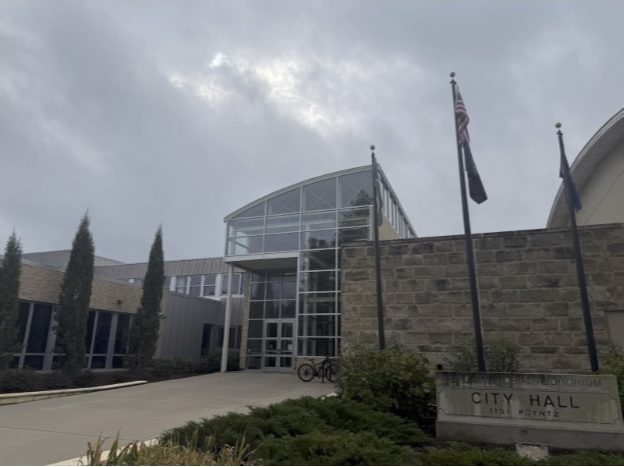The transition from college to the professional world is a pivotal phase in a student’s life, often marked by the quest for a fulfilling career. In this journey, the role of college networks emerges as a crucial element in unlocking doors to unconventional job roles after graduation. These networks, built through years of studying and interacting within the academic sphere, serve as a bridge between the theoretical knowledge acquired in school and the practical demands of the workforce.
For many students, juggling assignments, homework, and learning new concepts is an overwhelming task. In such times, the thought of hiring a paper writing service, such like DoMyEssay, that can do my project might cross their minds as they strive to balance academic responsibilities with career planning. Here, the importance of college networks becomes evident, offering a support system and guidance in navigating the post-graduation landscape.
The Importance of College Networks
Building Professional Relationships
College networks are more than just social circles. They are a dynamic web of connections encompassing professors, alumni, and industry professionals. These relationships are vital in offering diverse insights into various industries and unveiling career paths that go beyond traditional roles. Students gain a broader perspective on the professional world, understanding the nuances and demands of different sectors. Furthermore, these networks facilitate a deeper understanding of industry expectations and emerging trends, bridging the gap between academic theory and real-world applications.
Leveraging Alumni Success Stories
Alumni are a treasure trove of experiences and wisdom, especially those who have carved out unique career paths. Their journeys serve as both a source of inspiration and a practical guide for current students. These stories not only show the feasibility of pursuing unconventional roles but also offer real-life examples of overcoming challenges and seizing opportunities. Alumni can provide mentorship, advice, and sometimes even direct avenues for internships or job opportunities, making their role in college networks invaluable.
Faculty Guidance and Mentorship
The role of professors and academic advisors in a student’s career trajectory is profound. With their extensive networks and industry connections, they are often key figures in opening doors to unique opportunities. Their mentorship is a blend of academic guidance, career counseling, and personal development, tailored to help students navigate the complexities of the job market. Faculty members can provide critical insights into industry trends, recommend students for internships or projects, and offer valuable feedback on career choices and strategies.
Utilizing Career Services and Workshops
Career services at colleges are a crucial resource for students stepping into the professional world. These services are tailored to provide guidance on various career paths, including unconventional ones, and are instrumental in teaching vital skills like resume building and interview techniques. Additionally, career services often organize workshops and seminars that are essential for hands-on learning and skill development. These events are platforms for professional growth, enabling students to acquire practical skills that are highly valued in the job market.
Workshops and Seminars
Engaging in workshops and seminars offered by colleges is a proactive way for students to enhance their practical skills and broaden their professional networks. These events typically feature industry professionals and experts, providing students with the opportunity to gain insights from those currently active in their fields of interest. They are also excellent venues for students to ask questions, engage in discussions, and build connections that could lead to future job opportunities.
Career Fairs and Internship Opportunities
Career fairs and internships are direct conduits to the professional world. They offer a practical platform for students to interact with potential employers, understand the diverse roles available in various industries, and showcase their skills and capabilities. Internships, in particular, are critical for gaining hands-on experience, understanding workplace dynamics, and building a network of professional contacts.
Navigating Unconventional Career Paths
Identifying Niche Industries
Exploring unconventional job roles often means delving into niche industries or sectors that intersect multiple disciplines. This exploration requires comprehensive research, an understanding of evolving market trends, and an awareness of emerging industries. College networks, with their broad array of connections and resources, can be instrumental in providing insights and guidance into these unique and often less-explored sectors.
Harnessing Skills and Passions
Succeeding in unconventional roles often hinges on a blend of personal passion and professional skills. Colleges are fertile grounds for exploring and developing these aspects, offering a wide array of courses and extracurricular activities. These opportunities allow students to discover and refine their unique talents and interests, which can be critical in distinguishing themselves in specialized job roles.
Real-World Projects and Collaborations
Participating in real-world projects and collaborations during college is a strategic way to build a standout portfolio. These experiences are demonstrations of a student’s practical skills, initiative, and ability to apply classroom learning to real-world problems. They are also opportunities for networking, learning teamwork, and understanding the nuances of project management.
The Role of Online Networking
In today’s digital age, online platforms like LinkedIn and college alumni networks play a significant role in connecting students with industry professionals. Virtual networking allows students to reach out to a broader spectrum of potential mentors and employers.
Moreover, these digital forums provide a space for sharing experiences and expertise, enabling students to learn about diverse career paths and industry trends. By engaging in online discussions and webinars, students can gain insights into the skills and qualifications valued in their desired fields. Additionally, online networking events often offer a less intimidating environment for students to initiate conversations with professionals, making it an essential tool for career development in a globally connected world. Moreover, you can find online networking sites focused on a specific niche, so if you’re looking for help staffing for healthcare offices or you’re looking for a construction based niche, the sites are available at your fingertips.
Conclusion
As students prepare to embark on their professional journey, understanding the power of college networks in securing unconventional job roles is essential. These networks provide a foundation for career exploration and growth, offering support and opportunities that extend beyond the traditional job market. Remember, sometimes the best paper writing service can be a stepping stone in managing academic pressures, allowing students to focus on building these crucial relationships for their future career endeavors.






























































































































